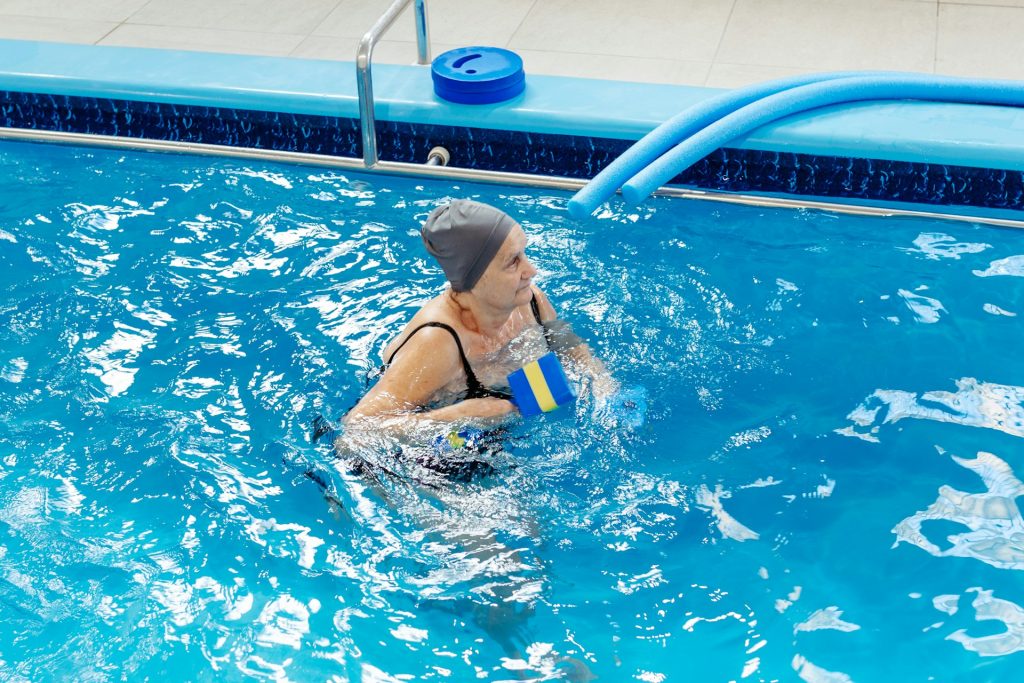Aquatic therapy is gaining recognition as an effective method for rehabilitation, particularly for those dealing with musculoskeletal or neuromuscular disorders. Medicare may cover aquatic therapy if it is deemed medically necessary, potentially easing the financial burden of treatment.
Understanding how Medicare addresses this type of therapy can help you make informed choices about your care. Navigating the complexities of Medicare options can be challenging, but with the right guidance, you can find a plan that meets your needs. The Modern Medicare Agency is here to assist you every step of the way. Our licensed agents provide personalized support, ensuring you find the best Medicare packages without any hidden fees.
As you explore the potential of aquatic therapy, it’s essential to know your coverage options and how to access these valuable treatments. With the right knowledge and assistance, you can take control of your health journey.
Understanding Medicare Coverage for Therapy Services
Medicare provides coverage for various therapy services, including aquatic therapy, under specific conditions. Coverage primarily falls under Medicare Part B and Medicare Advantage plans.
For aquatic therapy to be covered, it must be deemed medically necessary. Typically, this means you need a diagnosis from your healthcare provider that requires such treatment.
Key Points:
- Original Medicare (Part A and Part B) often covers therapy services if they meet set criteria.
- Medicare Part C, known as Medicare Advantage, may offer additional benefits that include aquatic therapy.
- Coverage information can vary, so it’s essential to check specific plan details thoroughly.
Documentation Requirements:
Medicare requires proper documentation to justify the medical necessity of therapy services. Ensure that your medical records include clear and relevant information to support your claims.
The Centers for Medicare & Medicaid Services (CMS) publish various guidelines outlining eligibility and coverage details. Staying informed through these CMS publications can enhance your understanding of available benefits.
For personalized assistance, consider partnering with The Modern Medicare Agency. Our licensed agents provide one-on-one consultations, helping you find Medicare packages tailored to your needs. With no extra fees, we focus on ensuring you receive the best value for your Medicare insurance.
Aquatic Therapy: An Overview
Aquatic therapy utilizes the properties of water to enhance rehabilitation and improve physical function. This form of therapy includes activities performed in water, often in settings like a swimming pool, whirlpool, or a Hubbard tank.
Buoyancy plays a crucial role in aquatic therapy. It reduces the effects of gravity, allowing you to perform movements with less strain on your joints. This can be particularly beneficial for individuals recovering from surgery or injury.
Hydrotherapy, often a key component of aquatic therapy, involves the use of water to relieve discomfort and promote healing. You might engage in resistance exercises that help build strength while minimizing the risk of injury.
For more advanced treatments, equipment like an underwater treadmill can be used. This allows you to walk or run in water, which can enhance your cardiovascular fitness without the stress on your body associated with land-based exercise.
Choosing the right Medicare coverage for aquatic therapy is essential. The Modern Medicare Agency can assist you in navigating your options. Our licensed agents are here to help you identify suitable Medicare packages tailored to your needs without hidden fees. You deserve to have guidance from real people who understand your requirements.
Eligibility Criteria for Aquatic Therapy Under Medicare
To qualify for aquatic therapy coverage under Medicare, certain eligibility criteria must be met.
Aquatic therapy must be deemed medically necessary. This means it should be part of a comprehensive treatment plan designed to rehabilitate a specific injury or chronic condition.
A licensed healthcare professional must prescribe the therapy. Generally, this will be a physical therapist or an occupational therapist who develops a therapy plan of care tailored to your individual rehabilitation needs.
Your medical history plays a crucial role. It should include documentation supporting the necessity of aquatic physical therapy for effective treatment.
Medicare may cover aquatic therapy if it is provided in a skilled nursing facility or during an inpatient hospital stay. In these cases, your treatment must be part of your recovery process.
Be prepared to provide comprehensive documentation to demonstrate your progress and the ongoing medical necessity of the therapy services. This includes detailed reports from your healthcare provider and your therapist.
If you are unsure about your coverage or eligibility, consider reaching out to The Modern Medicare Agency. Our licensed agents are available for one-on-one consultations. They can help identify Medicare packages that fit your needs without hidden fees, ensuring you receive the best options available.
Complementary Therapies and Services Included
Aquatic therapy is often complemented by various therapeutic services that enhance your rehabilitation process. Here are some key elements that may be included:
- Strength Training: Focuses on improving muscle strength, essential for daily activities.
- Balance and Coordination: Exercises designed to enhance stability, reducing fall risks.
- Mobility Exercises: Aid in improving your movement capabilities.
- Gait Training: Targets walking patterns to achieve better mobility.
Outpatient physical therapy can also be beneficial. It provides a structured environment for exercises tailored to your needs, improving range of motion and flexibility.
Occupational therapy services play a crucial role in helping you with activities of daily living. This may involve strategies to improve your posture and coordination for better functionality in everyday tasks.
Comprehensive outpatient rehabilitation facilities often offer a variety of therapeutic activities. This ensures a holistic approach to your recovery.
When seeking Medicare support for these therapies, consider The Modern Medicare Agency. Our licensed agents provide personalized service, helping you find Medicare packages that suit your specific needs without unexpected costs. You gain access to real people who understand your requirements and guide you through your options effectively.
Navigating Billing and Documentation for Medicare
When considering aquatic therapy under Medicare, understanding billing and documentation is crucial. Here’s a breakdown of the essential elements.
CPT Codes
Use specific CPT codes for aquatic therapy to ensure accurate billing. Common codes include those that identify the type of therapy you’re providing.
Therapy Certification
You must have therapy certification for billing aquatic therapy services. This document should confirm the medical necessity of the treatment.
Non-Physician Practitioners
Qualified non-physician practitioners can also provide aquatic therapy. Ensure they meet the qualifications set by Medicare for optimal claims processing.
Billing Requirements
Familiarize yourself with Medicare’s therapy billing requirements. Proper documentation must support the need for therapy, particularly when exceeding the standard visit limits.
Local Coverage Determination (LCD)
Check the Local Coverage Determination relevant to your area. This will outline specific guidelines and limitations on aquatic therapy coverage.
Claims Processing
Understand the claims processing procedures to avoid delays. Submit claims accurately and in a timely manner to prevent rejections.
Incorporating HCPCS Coding is also essential. Use the correct codes to identify supplies or services provided during aquatic therapy.
For personalized assistance with your Medicare insurance needs, consider The Modern Medicare Agency. Our licensed agents provide one-on-one support, helping you navigate the complexities of Medicare without unnecessary fees.
Conditions and Disorders Addressed by Aquatic Therapy
Aquatic therapy is effective for various conditions and disorders. The water environment provides unique benefits, facilitating movement that may be difficult on land.
Musculoskeletal Disorders: This includes conditions like arthritis and chronic pain. The buoyancy of water reduces stress on joints, easing movement and promoting joint mobility.
Chronic Back Pain: Water therapy can alleviate discomfort while allowing for gentle exercise. It is particularly useful in rehabilitation settings for strengthening core muscles.
Neurological Disorders: Individuals recovering from strokes or brain injuries can benefit from aquatic therapy. The supportive water environment aids in regaining movement and coordination.
Spinal Cord Injuries: Aquatic therapy allows for safe rehabilitation, focusing on improving muscle strength and functionality without undue pressure.
Fibromyalgia: The soothing properties of water, combined with hydromassage techniques, can help reduce pain and enhance relaxation.
Orthopedic Problems: Post-surgical recovery is improved through low-impact aquatic exercises, helping to regain strength and range of motion.
Chronic Pain and Maintenance Programs: Regular sessions can maintain mobility and reduce pain flare-ups, offering long-term benefits.
Lastly, if you’re considering aquatic therapy for your Medicare coverage, The Modern Medicare Agency can assist you. Our licensed agents work with you personally to find the best Medicare packages that fit your needs, without hidden fees.






